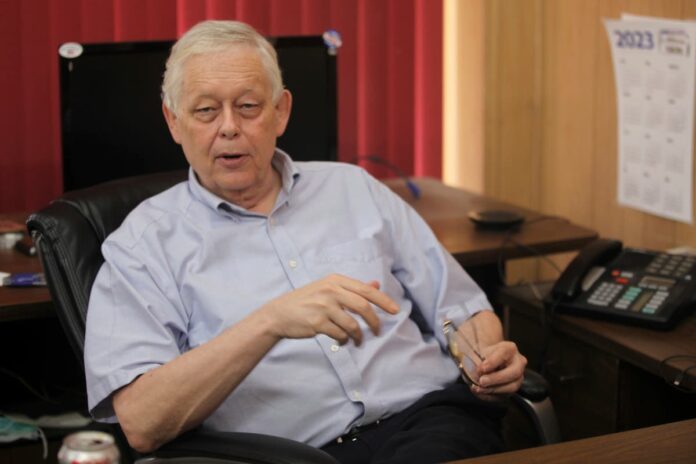A small central Kansas police department is facing a firestorm of criticism after it raided the offices of a local newspaper and the home of its publisher and owner – a move deemed by several press freedom watchdogs as a blatant violation of the U.S. Constitution’s protection of a free press. The Marion County Record said in its own published reports that police raided the newspaper’s office on Friday, seizing the newspaper’s computers, phones and file server and the personal cellphones of staff, based on a search warrant. One Record reporter said one of her fingers was injured when Marion Police Chief Gideon Cody wrested her cellphone out of her hand, according to the report. Police simultaneously raided the home of Eric Meyer, the newspaper’s publisher and co-owner, seizing computers, his cellphone and the home’s internet router, Meyer said. Meyer’s 98-year-old mother – Record co-owner Joan Meyer who lived in the home with her son – collapsed and died Saturday, Meyer said, blaming her death on the stress of the raid of her home. Meyer said in his newspaper’s report that he believes the raid was prompted by a story published last week about a local restaurant owner, Kari Newell. Newell had police remove Meyer and a newspaper reporter from her restaurant early this month, who were there to cover a public reception for U.S. Rep. Jake LaTurner, a Republican representing the area. The police chief and other officials also attended and were acknowledged at the reception, and the Marion Police Department highlighted the event on its Facebook page. The next week at a city council meeting, Newell publicly accused the newspaper of using illegal means to get information on a drunken driving conviction against her. The newspaper countered that it received that information unsolicited, which it sought to verify through public online records. It eventually decided not to run a story on Newell’s DUI , but it did run a story on the city council meeting, in which Newell confirmed the 2008 DUI conviction herself. A two-page search warrant, signed by a local judge, lists Newell as the victim of alleged crimes by the newspaper. When the newspaper asked for a copy of the probable cause affidavit required by law to issue a search warrant, the district court issued a signed statement saying no such affidavit was on file, the Record reported. Newell declined to comment Sunday, saying she was too busy to speak. She said she would call back later Sunday to answer questions. Cody, the police chief, defended the raid on Sunday, saying in an email to The Associated Press that while federal law usually requires a subpoena – not just a search warrant – to raid a newsroom, there is an exception ‘when there is reason to believe the journalist is taking part in the underlying wrongdoing.’ Cody did not give details about what that alleged wrongdoing entailed. Cody, who was hired in late April as Marion’s police chief after serving 24 years in the Kansas City, Missouri, Police Department, did not respond to questions about whether police filed a probable cause affidavit for the search warrant. He also did not answer questions about how police believe Newell was victimized. Meyer said the newspaper plans to sue the police department and possibly others, calling the raid an unconstitutional violation of the First Amendment’s free press guarantee. Press freedom and civil rights organizations agreed that police, the local prosecutor’s office and the judge who signed off on the search warrant overstepped their authority. ‘It seems like one of the most aggressive police raids of a news organization or entity in quite some time,’ said Sharon Brett, legal director for the American Civil Liberties Union of Kansas. The breadth of the raid and the aggressiveness in which it was carried out seems to be ‘quite an alarming abuse of authority from the local police department,’ Brett said. Seth Stern, director of advocacy for Freedom of the Press Foundation, said in a statement that the raid appeared to have violated federal law, the First Amendment, ‘and basic human decency.’ ‘This looks like the latest example of American law enforcement officers treating the press in a manner previously associated with authoritarian regimes,” Stern said. ‘The anti-press rhetoric that’s become so pervasive in this country has become more than just talk and is creating a dangerous environment for journalists trying to do their jobs.’ — Beck reported from Omaha, Nebraska. ___ The Associated Press receives support from several private foundations to enhance its explanatory coverage of elections and democracy. See more about AP’s democracy initiative here. The AP is solely responsible for all content.
Police questioned over legality of Kansas newspaper raid in which computers, phones seized
Sourceindependent.co.uk
RELATED ARTICLES


